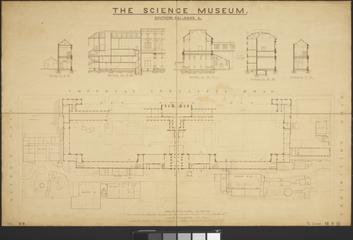
Oral history interview with Eddy Holmes conducted and recorded by Jo Bath in 2004 as part of the Time Tracks oral history collecting initiative. Duration: 1 hour 15 minutes. [Track 01] Childhood; moved Yorkshire to Shildon (1968), education, left school September 1946 [00:02:50] first job, telegram boy for 1 month, duties [00:04:07] [end of track 01]; [Track 02] starting work, telegram delivery, grocery job (10 months), reasons for leaving, British Rail (BR) Shildon Works (start August 1947) [00:02:40]; start career at Shildon railway works, office boy (Welding Shop office), machinist, training until 21 years [00:04:10]; move to Smith’s Shop, details of work [00:05:00]; move to Wheel’s Shop, grade 1 machining, details of work; move to Machine Profile Burning (1964); work there until Works closure 1984, Shildon BR “jewel in the crown”, details of wagon building, high-capacity wagon contract (1960’s) saved Shildon, details of high-capacity wagon operation, final 11 years as part-time finished work inspector [00:09:00]; normal working day, working hours; making couplings, drilling machines; salary, wages, piece work, details of different work, work pattern, shift work [00:14:40]; working atmosphere; socialising, holidaying together, good relationships, friendships [00:18:00]; health and safety, machine guards, incident, machine profile burning conditions, ambulance room, personal injury, works fire brigade [00:22:00]; working conditions, dirty work in machine profiling burning, clothing, heat produced [00:25:35];
likes/dislikes of job, relief finished work inspecting, reasons; clocking in/out system, least liked-line drilling, reasons [00:28:40]; cats at the Works, personal views [00:30:00]; Shildon Railway Institute, table tennis, snooker, competitions, talent contests [00:31:50]; singing experience in clubs; details of club work, Empire Theatre Middlesborough, other Shildon singers – Alan Fryatt, John Fryatt (organist), George Remain [00:37:00]; boxing in Shildon, good boxers at the Works, Sid Cottingham (machine burner), Ronny Cottingham, gymnasium at the Works [00:38:44] [end of track 02]; [Track 03] 1975 celebrations, Stockton and Darlington 150th anniversary, few memories, volunteering details, details of event, details of visitors, what was seen [00:03:20]1950 event, no memories [00:04:15]; Union membership, NUR, AEU, AEU shop steward, details of shop stewards and convenors [00:06:00]; works closure, 1982 demonstration to keep Works open, reason for demonstration, House of Commons visit, success at keeping Works open until 1984, politics linked to closure, gradual workforce decrease, low morale, protest involvement, meeting with MPs, blame for closure, questioning reasons for closure [00:12:00]; work after Works closure, machine profile burner at Shildon Forge, works committee, dismissal, disputing dismissal, colleagues support, good relationship with management [00:26:00]; further employment details, Cleveland Bridge at Darlington CN machine operator (9 years), retirement 1967 [00:27:55]; views of other Shildon works employees after closure, majority wanted another job, not a lot of other work, works reduced from 25000 men, some transferred elsewhere, hard for older employees, town has recovered from the closure [00:32:16] [end of Track 03] [end of interview]
Time Tracks, Shildon Railway Village Community Project was an initiative funded by the National Lottery Heritage Fund that encouraged members of the public to bring photographs and documents at Locomotion to form a community archive, when Locomotion museum was opened in Shildon, 2004. Over 50 oral history interviews were also recorded with members of the community. They shared their memories of Shildon as they knew it in their childhood and throughout their lives, from as early as the 1920s, as well as their work experiences in local factories and industries, including Shildon railway works.
Details
- Category:
- Corporate Archive
- Object Number:
- 2023-1053
- Materials:
- metal (unknown) and plastic (unidentified)
- type:
- minidisc